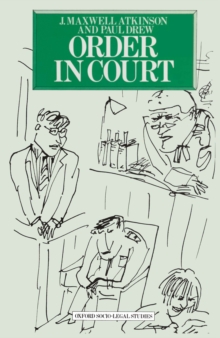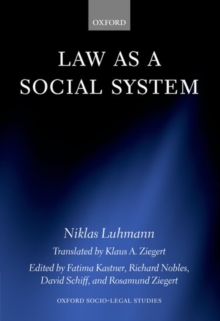
Revolution and the Making of the Contemporary Legal Profession : England, France, and the United States Hardback
by Michael (Research Fellow in Industrial Relations, London School of Economics and Political Burrage
Part of the Oxford Socio-Legal Studies series
Hardback
Description
The revolutions of France, the United States, and England each inspired dreams of creating legal institutions that did not depend on specialist intermediaries, and, in different ways, provoked attacks on the existing rules and government of the legal profession more widespread and severe than at any other time in their history.
These dreams came to naught and, sooner or later, the professions recovered, but their revolutionary experiences nevertheless had a lasting impact on their subsequent organization, and help to explain why three previously convergent professions should diverge as their societies industrialised.
The social upheaval of industrialization may also help to explain many of their peculiarities down to the present day: why, for instance, French advocates imposed such strict ethical obligations on themselves, from which they were only released by the state in 1992, why American lawyers should be the first to be at ease in the market, but faced intractable problems of professional self-government, why two professions should emerge in England, both with a high degree of self-government, and both long indifferent to law schools and to the market for legal services.
Since lawyers were the first occupation to organize as a profession, this insightful comparative inquiry then asks what their experience might tell us about other organized occupations in these three societies, and the difference between their educational institutions, their division of labour, their civil societies and lesser forms of government, and about the ways they have been stratified and formed classes.
Information
-
Out of stock
- Format:Hardback
- Pages:696 pages
- Publisher:Oxford University Press
- Publication Date:02/03/2006
- Category:
- ISBN:9780199282982
Information
-
Out of stock
- Format:Hardback
- Pages:696 pages
- Publisher:Oxford University Press
- Publication Date:02/03/2006
- Category:
- ISBN:9780199282982










